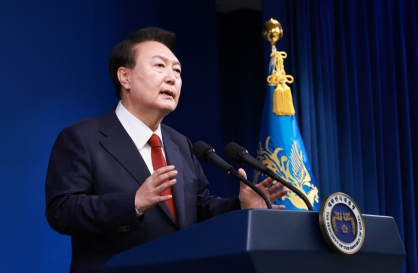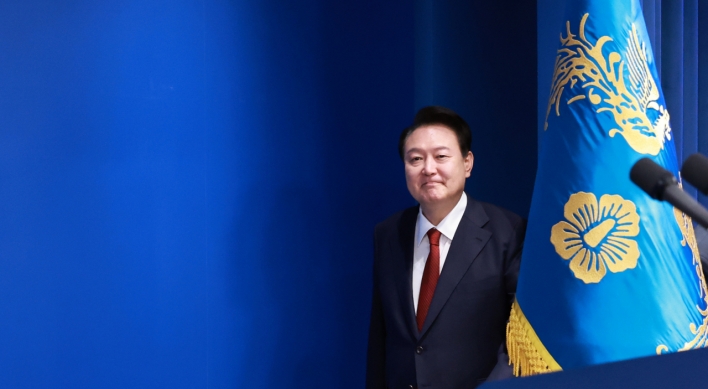Big firms still favor former officials as outside directors
By Korea HeraldPublished : Sept. 10, 2012 - 20:36
Affiliates of Korea’s top 10 conglomerates still prefer former government officials and ex-policymakers as outside directors, data showed Monday, amid escalating criticism of their practice.
A total of 330 people served as outside directors at the 93 affiliates of the leading conglomerates as of end-June this year, down from 337 a year earlier, according to the data compiled by local research firm Chaebul.com.
Of the 77 outside directors newly hired, 29, or 37.7 percent, were former government officials, retired judges, prosecutors and senior policymakers, and those who worked for the tax office, the financial watchdog and corporate watchdog, the data showed.
Upon retirement, a bulk of ranking government officials is scouted by companies, which wish to use their influence to build up favorable business ties. The deep-rooted practice has often been criticized for leading to an unjust business culture.
But local companies have continued to frequently appoint former policymakers and members of the judiciary to sit on their boards and offer generous retainer fees that can be construed as a form of lobbying.
Such outside directors have been also under fire for failing in their duties by providing neutral opinions on how to run a company and prevent the misuse of management authority that can hurt investors and employees.
Experts said more transparency should be put in place for the appointment of an outside director, which could raise independence of outside directors so they can perform their roles in a more effective manner.
“Enhancing independence will reduce the chance of these posts being used for lobbying since companies will not be as able to influence outside directors as they could in the past,” said Lee Ki-ung, an official at the Citizens’ Coalition for Economic Justice, a local civic group.
Also, guidelines that can disqualify a prospective outside director from being appointed, and establishing other safety nets can better prevent the system from being used as a lobbying tool, experts said. (Yonhap News)
A total of 330 people served as outside directors at the 93 affiliates of the leading conglomerates as of end-June this year, down from 337 a year earlier, according to the data compiled by local research firm Chaebul.com.
Of the 77 outside directors newly hired, 29, or 37.7 percent, were former government officials, retired judges, prosecutors and senior policymakers, and those who worked for the tax office, the financial watchdog and corporate watchdog, the data showed.
Upon retirement, a bulk of ranking government officials is scouted by companies, which wish to use their influence to build up favorable business ties. The deep-rooted practice has often been criticized for leading to an unjust business culture.
But local companies have continued to frequently appoint former policymakers and members of the judiciary to sit on their boards and offer generous retainer fees that can be construed as a form of lobbying.
Such outside directors have been also under fire for failing in their duties by providing neutral opinions on how to run a company and prevent the misuse of management authority that can hurt investors and employees.
Experts said more transparency should be put in place for the appointment of an outside director, which could raise independence of outside directors so they can perform their roles in a more effective manner.
“Enhancing independence will reduce the chance of these posts being used for lobbying since companies will not be as able to influence outside directors as they could in the past,” said Lee Ki-ung, an official at the Citizens’ Coalition for Economic Justice, a local civic group.
Also, guidelines that can disqualify a prospective outside director from being appointed, and establishing other safety nets can better prevent the system from being used as a lobbying tool, experts said. (Yonhap News)
-
Articles by Korea Herald











![[K-pop’s dilemma] Time, profit pressures work against originality](http://res.heraldm.com/phpwas/restmb_idxmake.php?idx=644&simg=/content/image/2024/05/08/20240508050705_0.jpg&u=20240508171126)







